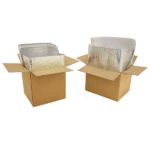Revolutionizing Your Camping with Dry Ice
Dry ice is a game-changer for keeping food fresh during camping trips, especially for long durations. As a solid form of carbon dioxide (CO₂), it’s much colder than regular ice and doesn’t create a mess, making it an excellent choice for preserving perishables in remote areas. This guide explains how dry ice works, its benefits, safety tips, and how it can enhance your camping experience.
-
Understand the benefits of dry ice for camping, from superior cooling to longer-lasting freshness.
-
Learn best practices for packing dry ice efficiently in coolers.
-
Get safety tips to handle dry ice correctly during your trip.
-
Explore 2025 trends in the outdoor industry and how dry ice is revolutionizing camping gear.
Why Should You Use Dry Ice for Camping?
What Makes Dry Ice Perfect for Camping?
Dry ice is colder than traditional ice, maintaining temperatures as low as -109.3°F (-78.5°C). It lasts significantly longer than regular ice and doesn’t melt into water, which means your food and drinks remain cooler and drier. For multi-day camping trips, dry ice can be an indispensable tool, keeping your perishables fresh without worrying about leaks or soggy coolers.
Example: Imagine you’re on a three-day camping trip in the summer. Traditional ice may melt before you finish your trip, leaving food exposed to spoilage. With dry ice, your cooler stays cold throughout the journey, and your food stays fresh.
How Does Dry Ice Work for Cooling?
Dry Ice vs. Regular Ice: What’s the Difference?
Dry ice sublimates, turning directly from solid to gas, unlike regular ice, which melts into water. This process not only maintains a much colder environment but also avoids any mess, ensuring your food stays dry and safe. Dry ice maintains its temperature for up to three times longer than regular ice and doesn’t introduce moisture into your cooler, eliminating the problem of soggy food.
| Feature | Regular Ice | Dry Ice |
|---|---|---|
| Temperature | 32°F (0°C) | -109.3°F (-78.5°C) |
| Melting Process | Melts into water | Sublimates into gas |
| Cooling Ability | Keeps items cold | Keeps items frozen solid |
| Water Production | Yes | None |
| Best for | Chilling drinks, short trips | Extended trips, frozen foods |
Best Practices for Packing Dry Ice for Camping
Packing Dry Ice Efficiently
To make the most out of dry ice, it’s essential to pack it properly:
-
Use a well-insulated cooler: High-quality coolers are designed to trap cold air, keeping your dry ice working longer.
-
Wrap dry ice in newspaper or cloth: This slows down sublimation and prevents direct contact with food, ensuring better temperature control.
-
Place dry ice at the top: Cold air sinks, so placing dry ice at the top of your cooler ensures the coldest air reaches your food.
-
Limit opening the cooler: Each time you open the cooler, cold air escapes, reducing the effectiveness of the dry ice.
Safety Tips for Handling Dry Ice
Protect Yourself and Your Gear
Handling dry ice requires safety precautions due to its extremely low temperatures:
-
Wear protective gloves: Always use insulated gloves or tongs to handle dry ice to prevent frostbite.
-
Ventilate the area: As dry ice sublimates, it releases carbon dioxide gas, which can displace oxygen. Always use dry ice in well-ventilated areas to avoid suffocation.
-
Avoid airtight containers: Never store dry ice in a sealed container as the pressure buildup can cause an explosion.
How Long Does Dry Ice Last in a Cooler?
Factors Affecting Dry Ice Duration
The lifespan of dry ice depends on factors like the amount used, the cooler’s insulation, and how frequently it is opened. On average, dry ice lasts 18-24 hours in a well-insulated cooler. Larger blocks can last longer, while smaller pieces will sublimate faster.
Using Dry Ice for Cooking While Camping
In addition to cooling and preserving food, dry ice can be used for creative camping cooking:
-
Create a cool mist: Use dry ice to create an eerie mist during evening meals or cookouts.
-
Quick chill drinks: Dry ice can quickly chill beverages, making it perfect for hot summer days.
2025 Trends in Dry Ice Usage for Outdoor Activities
The Growing Popularity of Dry Ice in Camping
As outdoor camping and adventure travel continue to rise, so does the demand for dry ice. By 2025, technological advancements in dry ice storage and packaging are expected to make it even more accessible and eco-friendly. This trend is also driven by sustainability—more efficient and environmentally friendly packaging solutions are emerging in the industry.
Emerging Trends:
-
Eco-friendly dry ice packaging: New packaging methods are reducing the environmental impact of dry ice while enhancing its convenience.
-
Increased use in extreme climates: Dry ice is becoming more popular for camping in hot or remote locations where ice is difficult to maintain.
Frequently Asked Questions
Q1: How much dry ice should I bring for a weekend camping trip?
You should estimate around 1-2 pounds of dry ice per person per day. Adjust based on the length of your trip and the types of food you’re bringing.
Q2: Can dry ice be used for cooling beverages?
Yes, dry ice is perfect for chilling beverages quickly. Ensure it doesn’t come into direct contact with the drinks to avoid freezing them.
Conclusion and Recommendations
Dry ice offers a fantastic way to preserve food on extended camping trips, eliminating the mess of melted ice and ensuring your perishables stay fresh. By following the packing and safety guidelines provided, you can enjoy a stress-free outdoor adventure, even in extreme conditions.
Ready to Try Dry Ice for Your Next Camping Trip?
Contact us today for expert advice and personalized tips on how to safely use dry ice during your outdoor adventures.
About Tempk
At Tempk, we specialize in cold chain solutions, providing high-quality products and services for industries like food preservation and medical transport. Our dry ice solutions ensure your supplies stay cool and fresh, no matter where your adventure takes you.
Need help? Reach out to our team for more information on safe storage and handling for your camping needs!
























